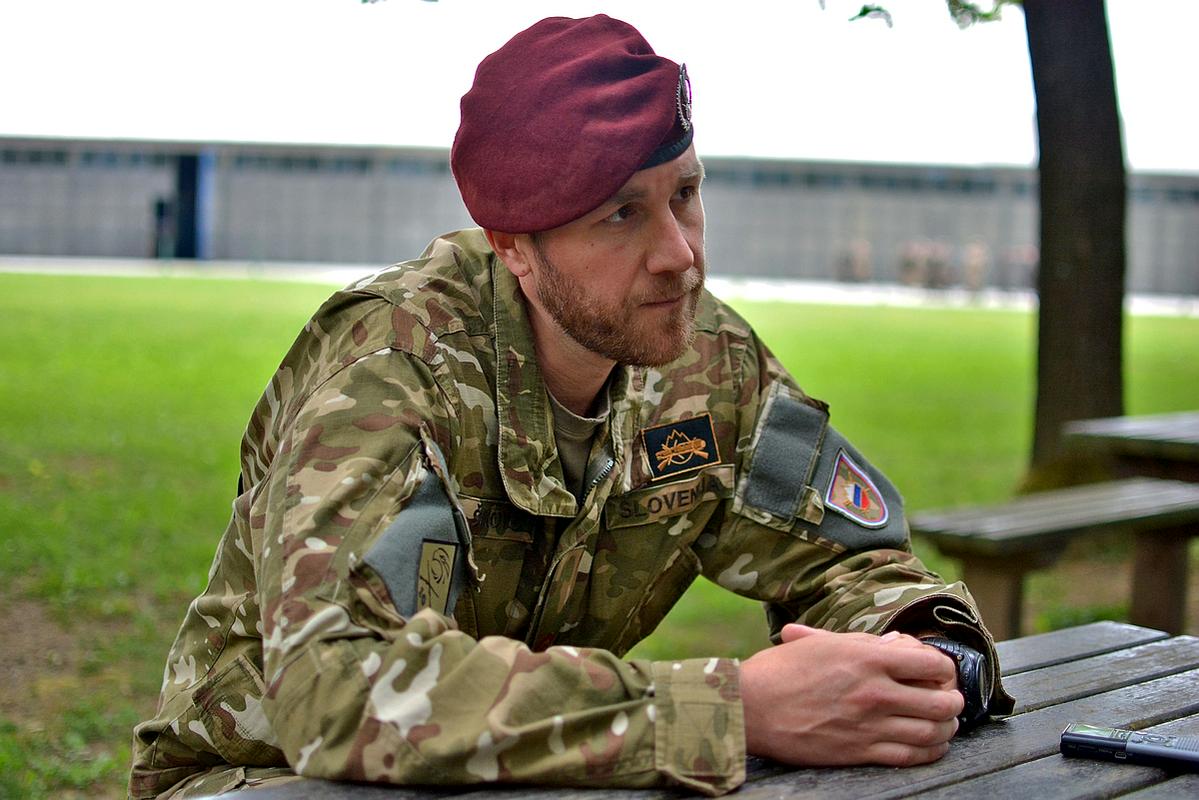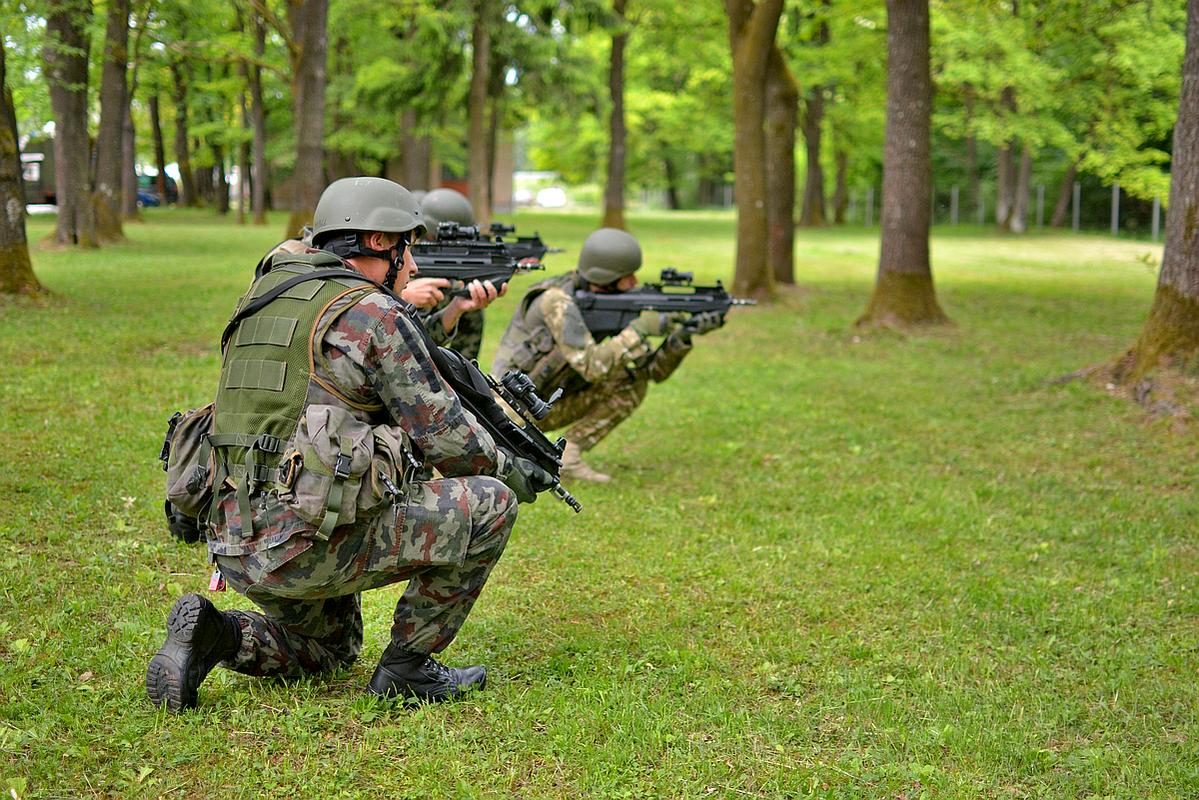

At the beginning Slovenia's army was based on recruits while since 2004 it is only a professional army. Today it has 7,138 full-time soldiers and 1,070 members of the reserve forces, based on contracts. MMC talked with Sebastjan Šikovec, a soldier who served in five armed missions abroad – once in Bosnia and Herzegovina and four times in Kosovo. The first time was the easiest, as he had no responsibilities or ties back home. The next time he went on a mission he had a girlfriend waiting for him, and on his two last missions he had a baby daughter at home. That was the most difficult thing to face.
“The most difficult thing is when things at home are not in order before your departure. Then you have to tackle those problems during your mission abroad, which is difficult,” says Šikovec and adds that if you haven’t solved your problems at home, you usually can’t do much from there. Šikovec doesn’t hide that the soldier’s main motive for joining an international mission is the money – much more than the opportunity for professional promotion. “That’s how it is. You endure with patience, to be able to earn something at the end. It depends on the individual whether they will bring the earned money home or if they will spend it there on the spot. You spend the most money on your first mission. That’s when, your eyes are big,” he laughs
Each mission requires many months of training. “We covered everything, from our individual skills to the department, division and troops. Everything was upgraded: our shooting, tactics... At the end we dealt with specific mission trainings: public order, cooperation with the media, cooperation with the local inhabitants, we were taught about various religions in Bosnia and Herzegovina, to avoid saying something that we were not supposed to say. This was a truly delicate topic at that time, as the war had ended just recently,” says Šikovec. He adds that the basics of tactic training remain the same in each mission, in Bosnia, Kosovo or Afghanistan. Specific preparations can vary in details according to each individual mission.
Tina Hacler, translated by K. J.

































































